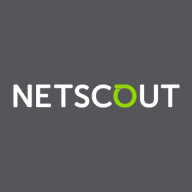


Arbor DDoS and Fortinet FortiDDoS compete in the realm of DDoS protection. Arbor DDoS holds the advantage due to its superior reporting, traffic visualization, and flexible deployment options.
Features: Arbor DDoS provides advanced reporting, real-time packet capture, and a hybrid protection approach, making it suitable for ISPs and large enterprises. Its precise traffic filtering significantly enhances security. Fortinet FortiDDoS offers specific protection resources and support, beneficial for targeted network defense, despite not offering the high-level insights that Arbor provides.
Room for Improvement: Arbor DDoS could improve its auto-mitigation to reduce the impact on legitimate traffic and enhance scalability with better integration with non-Arbor technologies. Fortinet FortiDDoS requires upgrades to manage higher bandwidths efficiently and could benefit from improved application traffic management beyond network layer protection.
Ease of Deployment and Customer Service: Arbor provides multiple deployment options, including hybrid cloud and on-premises, whereas Fortinet offers only on-premises deployment. Both receive positive remarks for customer service and technical support, although Arbor's support team is highly rated for its expertise and resolution efficiency.
Pricing and ROI: Arbor DDoS is priced higher but is seen to provide positive ROI, especially for larger enterprises, justified by comprehensive features. Fortinet FortiDDoS is cost-effective yet still expensive for SMBs, with limitations in scalability. Both solutions help maintain uptime and reduce potential financial losses from DDoS attacks, though Arbor's ROI stands out in larger deployments.
| Product | Market Share (%) |
|---|---|
| Cloudflare | 17.8% |
| Arbor DDoS | 10.2% |
| Fortinet FortiDDoS | 2.5% |
| Other | 69.5% |
| Company Size | Count |
|---|---|
| Small Business | 46 |
| Midsize Enterprise | 8 |
| Large Enterprise | 25 |
| Company Size | Count |
|---|---|
| Small Business | 25 |
| Midsize Enterprise | 14 |
| Large Enterprise | 29 |
| Company Size | Count |
|---|---|
| Small Business | 10 |
| Large Enterprise | 6 |
Cloudflare enhances web performance and security with features like CDN caching and DDoS mitigation while providing easy DNS management and intuitive setup through its user-friendly dashboard.
Cloudflare is recognized for its comprehensive web security and performance solutions. Speed improvements are achieved through caching mechanisms and DDoS protection, combining ease of DNS management with flexible page rules. The robust analytics and threat insight tools provide valuable data, assisted by a user-friendly dashboard allowing quick setup and configuration. An API offers dynamic DNS settings ensuring low latency and high performance across the globe.
What are Cloudflare's key features?Cloudflare finds utility across industries for DNS management and defense mechanisms. Its content delivery network assures fast content distribution and fortified security. Businesses integrate features like web application firewalls, load balancing, end-to-end SSL, and zero trust to protect websites from cyber threats while ensuring resilience and reliable performance.
Arbor DDoS offers a comprehensive defense system against DDoS attacks, integrating a user-friendly GUI and advanced threat mitigation technologies for enhanced network protection.
Arbor DDoS is recognized for its ability to manage high-volume DDoS attacks efficiently, providing extensive protection through real-time traffic analysis and automated threat detection. It utilizes advanced techniques such as blackhole and BGP Flowspec for effective threat management. Arbor's cloud signaling allows users to handle and mitigate volumetric attacks while maintaining service availability. Though it provides robust security features, users note potential improvements in auto-mitigation, scalability, and AI integration. Challenges like an outdated graphical interface, hardware stability, and false positives need addressing to further enhance its usability and integration with third-party systems.
What are the key features of Arbor DDoS?Internet service providers and telecom companies commonly adopt Arbor DDoS to protect their networks and infrastructure from DDoS attacks. It is also implemented in financial and government sectors to ensure web application security and maintain high availability. Arbor DDoS supports a hybrid approach, utilizing both on-premise and cloud solutions to manage traffic efficiently and sustain service quality during attacks.
Distributed Denial of Service (DDoS) attacks are ever-evolving and use a variety of technologies. To successfully combat these attacks, you need a dynamic, multi-layered security solution. FortiDDoS protects from both known and zero day attacks with very low latency. It’s easy to deploy and manage, and includes comprehensive reporting and analysis tools.
We monitor all Distributed Denial-of-Service (DDoS) Protection reviews to prevent fraudulent reviews and keep review quality high. We do not post reviews by company employees or direct competitors. We validate each review for authenticity via cross-reference with LinkedIn, and personal follow-up with the reviewer when necessary.